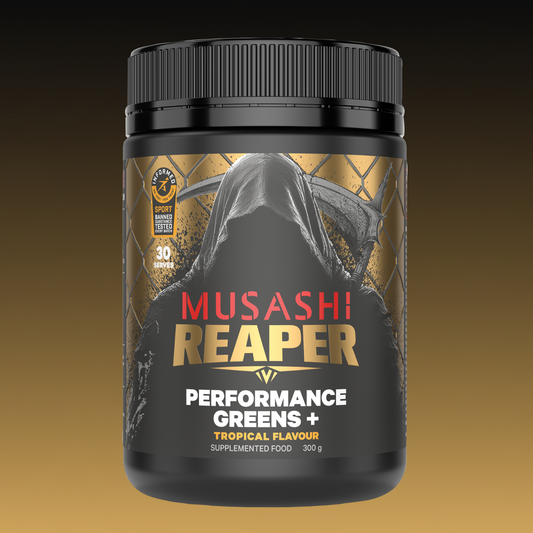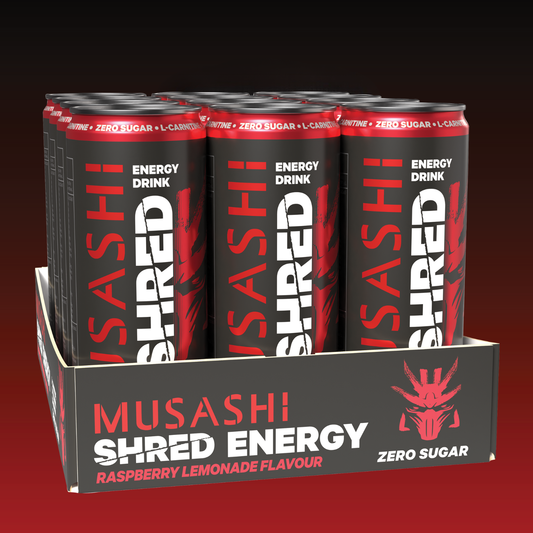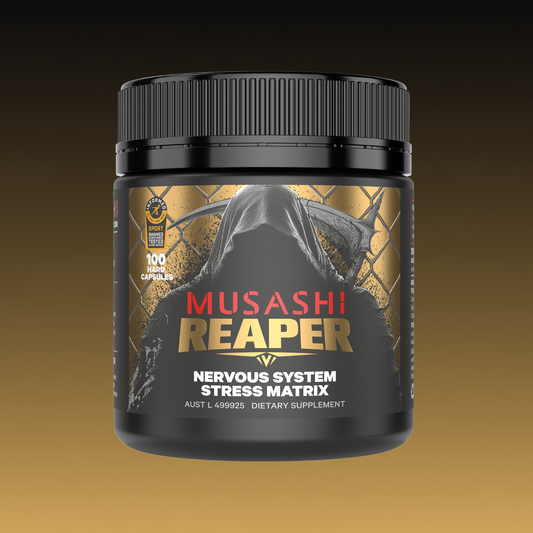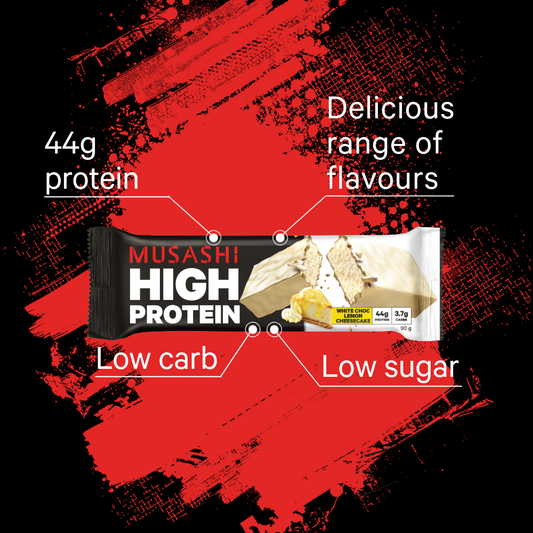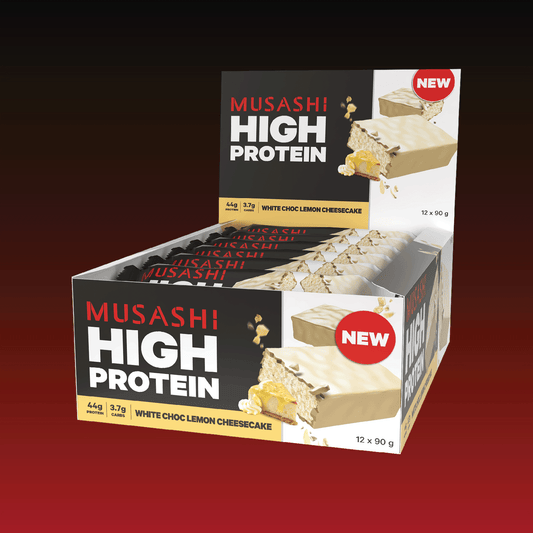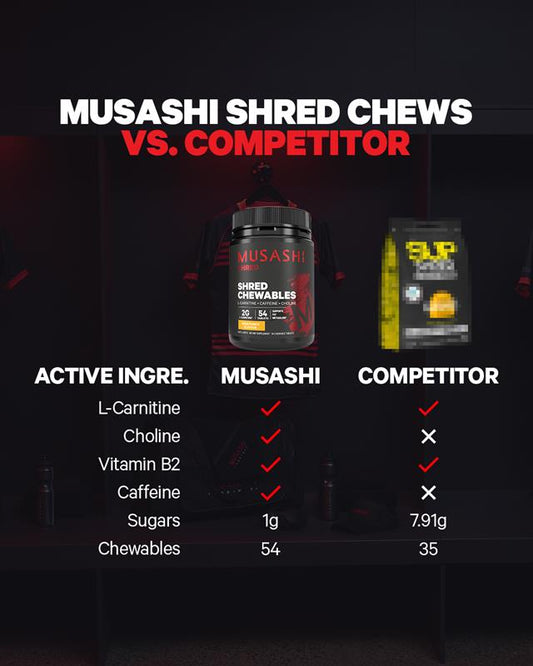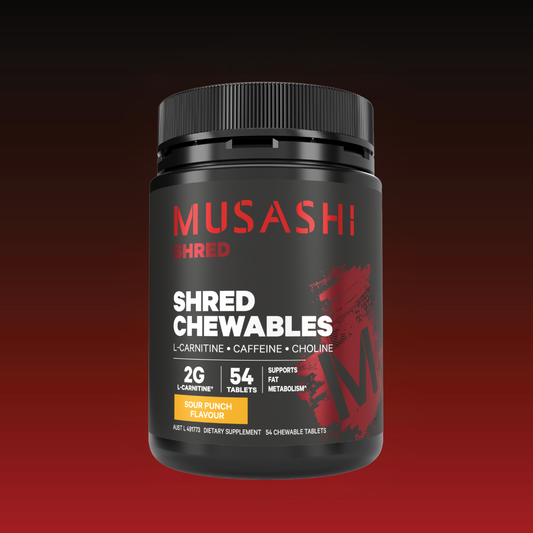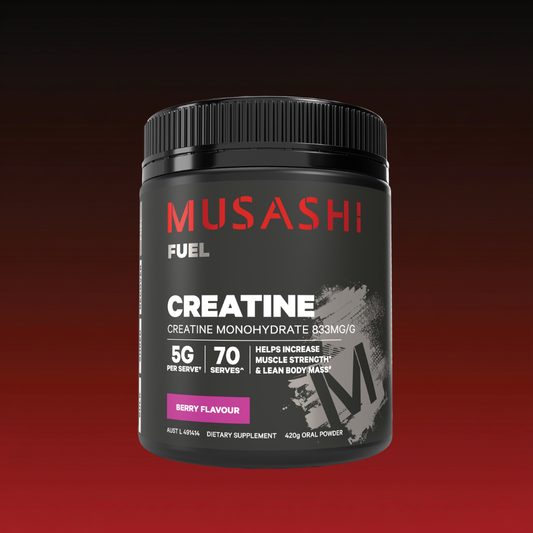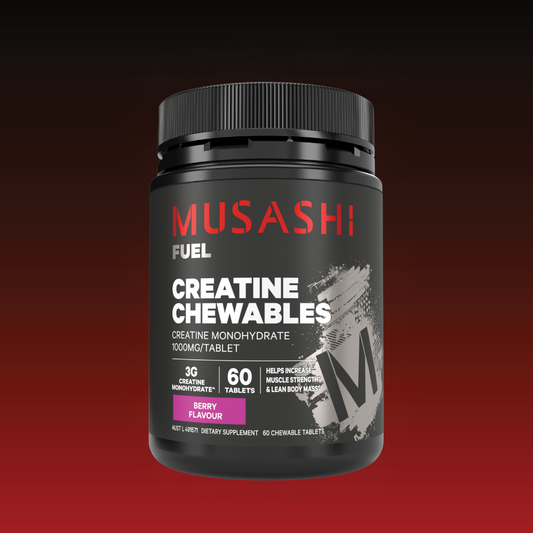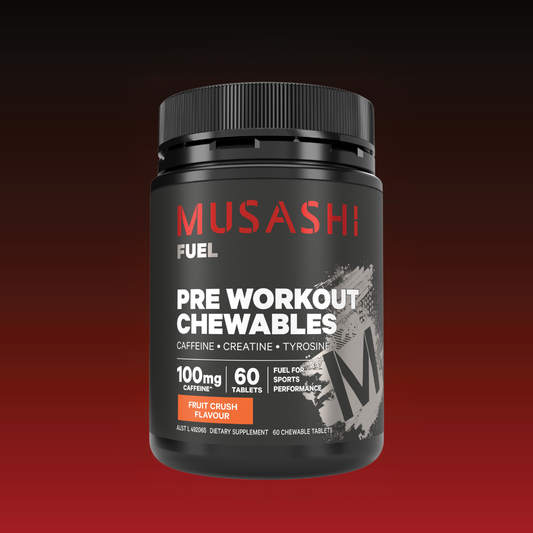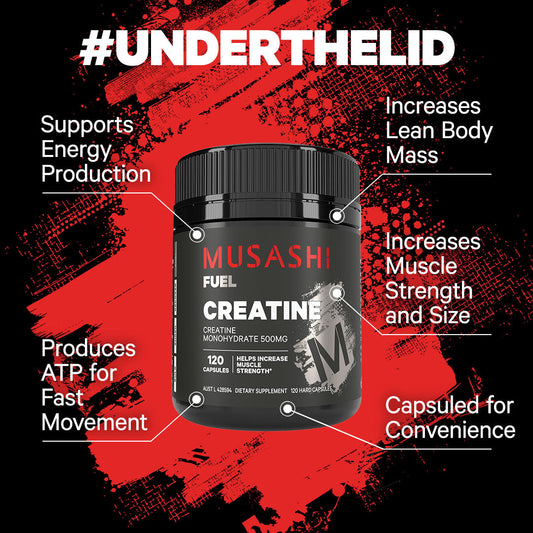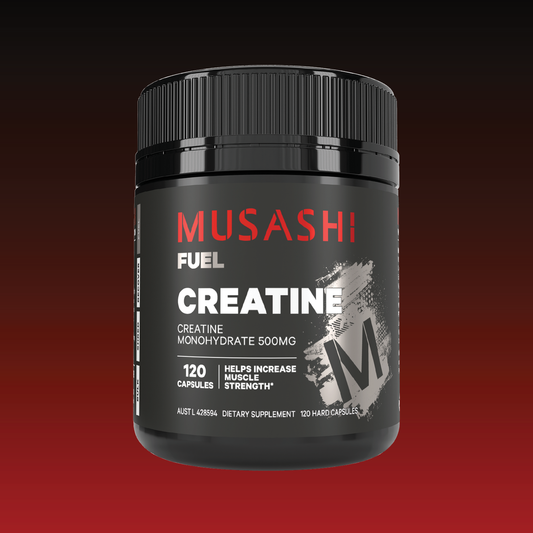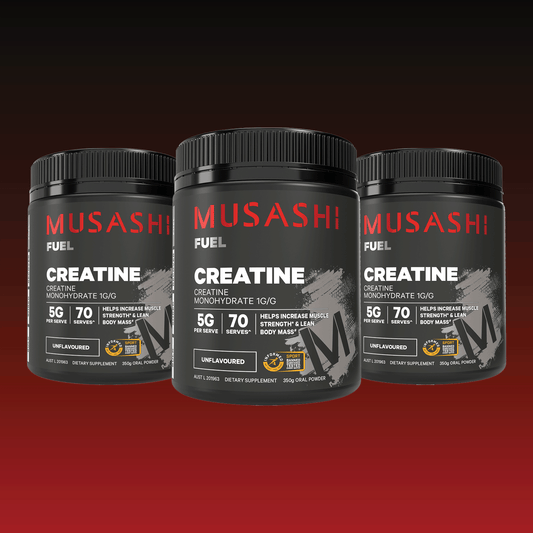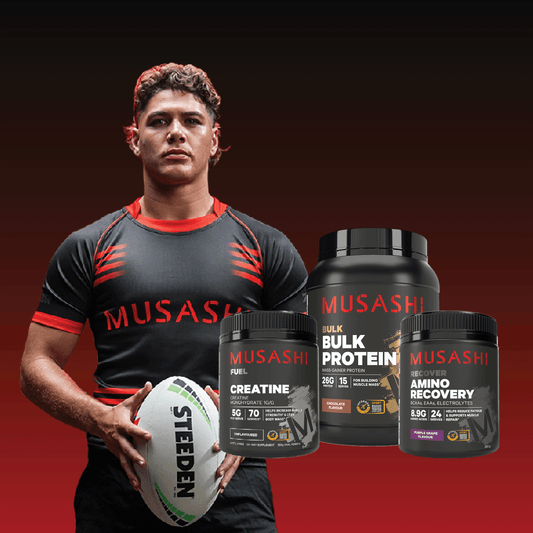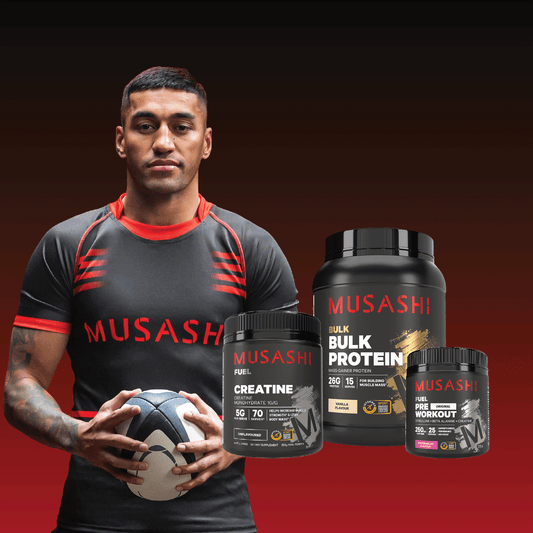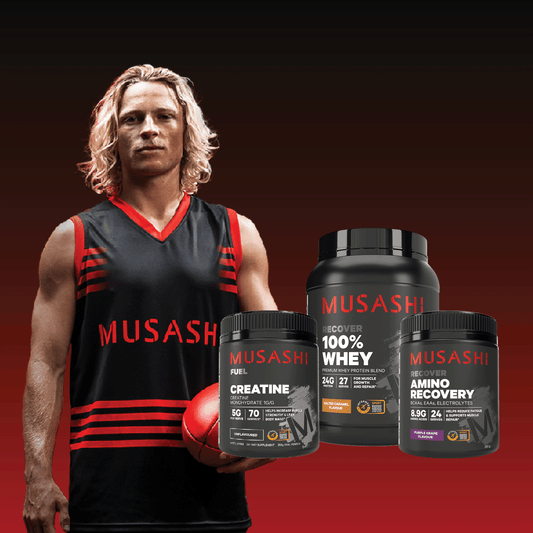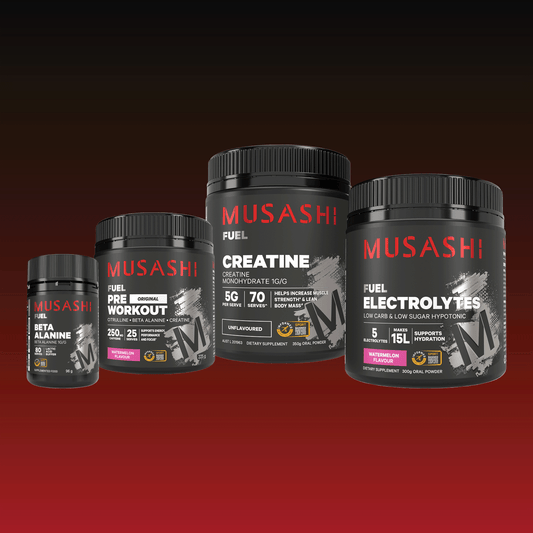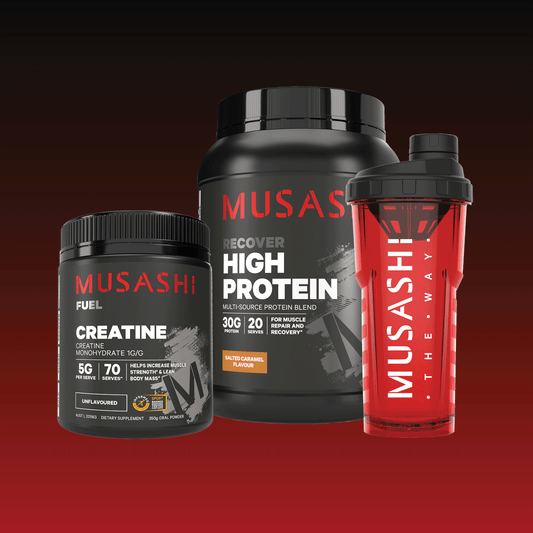Creatine, a naturally occurring compound found in foods like red meat and fish, is a vital source of energy during high-intensity activities such as weightlifting and sprinting. Since the body produces limited creatine, supplementation is key for enhanced athletic performance, offering increased strength, resistance to fatigue, and muscle recovery.
Musashi Creatine, a dietary supplement made from pure creatine monohydrate, is highly recommended, especially for sprinters and weightlifters, as it enables maximal efforts and muscle gains. Benefits include improved muscle strength, mass, recovery, and cognitive function, making it a versatile choice for athletes. For optimised results, a loading phase with recommended doses and timing is advised. When combined with protein and carbohydrates, creatine maximises muscle absorption and endurance.
-
Creatine Monohydrate Powder Unflavoured or Flavoured 2 Flavours Available
The Way To Fuel
4.79Regular price RRP From: $44.99 -
-
-
-
1KG Creatine Monohydrate Powder Value Bundle 3 Products
The Way To Fuel
Regular price RRP From: $134.97 -
-
-
-
-
-
-
-
REAPER CREATINE POWER MATRIX 300g 2 Flavours Available
The Way To Fuel
4.00Regular price RRP: $64.99 -
REAPER PERFORMANCE GREENS+ UNFLAVOURED OR FLAVOURED 300g 2 Flavours Available
The Way To Fuel
Regular price RRP: $64.99
Our FAQs have been written by Gwen Gothard, Sport Performance Nutritionist.
Where is your creatine sourced from?
Our creatine ingredient is sourced from China, then brought into our manufacturing facility in Auckland, New Zealand. Our QC team test every batch of raw material of the creatine to ensure it meets our standard before we manufacture our products.
This includes an assay (purity) test. We have a raw material approval process in place and only buy raw materials that have been approved and are also from an approved manufacturer. These raw materials must be supported by certificates of analysis showing the results of quality control tests performed by the supplier.
Raw materials must meet relevant legislation (Food Standard Australia NZ).

